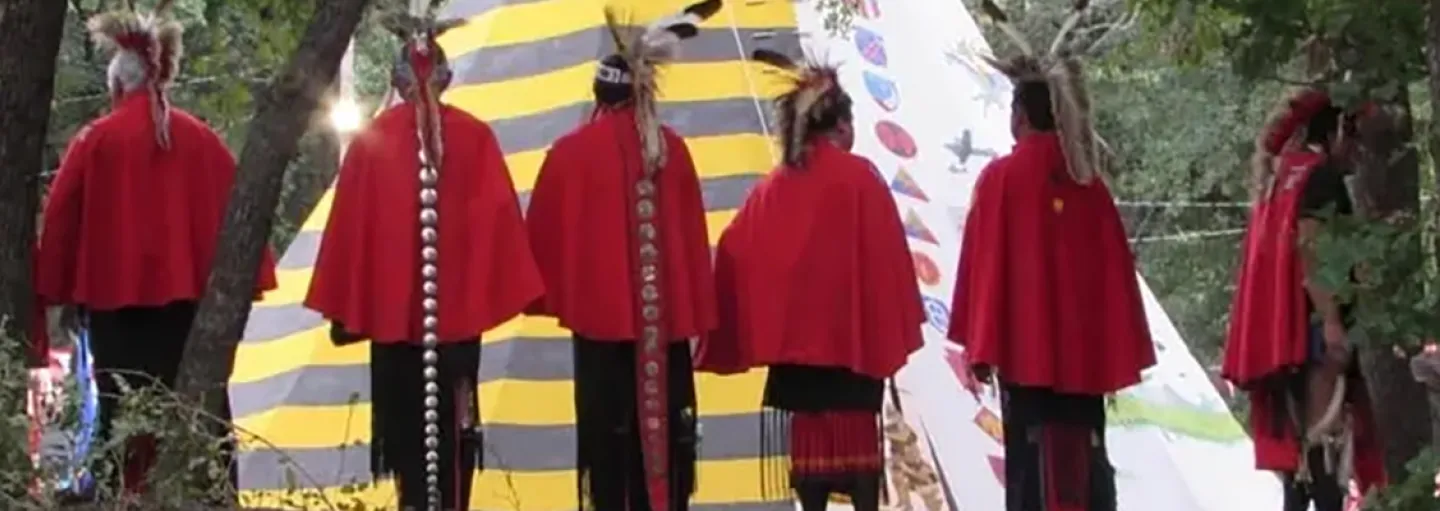Tune in to News 7 tonight, June 15th to hear our Vice Chairman's thoughts!
Washington — The Supreme Court on Thursday declined to disturb a federal law that governs the process for the placement of Native American children in foster or adoptive homes, rejecting constitutional challenges to the law.
The court ruled 7-2 in the case known as Haaland v. Brackeen, which was brought by a birth mother, foster and adoptive parents, and the state of Texas. The challengers claimed the law exceeds federal authority, infringes state sovereignty and discriminates on the basis of race.
In a majority opinion authored by Justice Amy Coney Barrett, the court turned down the challenges, a victory for the Biden administration and several Native American tribes that defended the law.
"The issues are complicated," Barrett wrote, adding that "the bottom line is that we reject all of petitioners' challenges to the statute, some on the merits and others for lack of standing."
Justices Clarence Thomas and Samuel Alito dissented.
Enacted in 1978, the Indian Child Welfare Act aims to keep Native American children connected to Native families by giving preference to those families or Native institutions during foster care and adoption proceedings that involve Native children. The law defines "Indian child" as not only one who is a member of a Native American tribe, but also one who is eligible for membership and the biological child of a tribal member.
The dispute before the Supreme Court arose from three child custody proceedings, during which the Indian Child Welfare Act was invoked to govern the placement of Native children. The White foster and adoptive parents, joined by the state of Texas, challenged the constitutionality of the law in federal court, arguing in part that it uses racial classifications that unlawfully impede non-Native families from fostering or adopting Native children.
A federal district court ruled in favor of the families, but the U.S. Court of Appeals for the 5th Circuit affirmed the lower court's decision that the law's preferences for prioritizing "other Indian families" and "Indian foster home[s]" over non-Native families are unconstitutional. The appeals court also upheld the district court's ruling that several of the law's requirements violated the 10th Amendment.
In a concurring opinion by Justice Neil Gorsuch, joined by Justice Sonia Sotomayor, Gorsuch praised the majority opinion upholding the law, and wrote that when enacting it more than 30 years ago, Congress exercised its lawful authority to "secure the right of Indian parents to raise their families as they please; the right of Indian children to grow in their culture; and the right of Indian communities to resist fading into the twilight of history."
"In affirming the constitutionality of the Indian Child Welfare Act (ICWA), the Court safeguards the ability of tribal members to raise their children free from interference by state authorities and other outside parties," he wrote. "In the process, the Court also goes a long way toward restoring the original balance between federal, state, and tribal powers the Constitution envisioned."
Thomas, in dissent, said while the Supreme Court's precedents reference a "plenary power" that Congress has over Native American affairs, such a power does not derive from any constitutional basis.
"[E]ven taking the Court's precedents as given, there is no reason to extend this 'plenary power' to the situation before us today: regulating state-court child custody proceedings of U. S. citizens, who may never have even set foot on Indian lands, merely because the child involved happens to be an Indian," he wrote.
President Biden cheered the majority's ruling, saying in a statement that he stands "alongside Tribal Nations as they celebrate today's Supreme Court decision."
"Our Nation's painful history looms large over today's decision. In the not-so-distant past, Native children were stolen from the arms of the people who loved them. They were sent to boarding schools or to be raised by non-Indian families — all with the aim of erasing who they are as Native people and tribal citizens. These were acts of unspeakable cruelty that affected generations of Native children and threatened the very survival of Tribal Nations," he said. "The Indian Child Welfare Act was our Nation's promise: never again."


